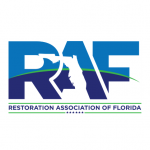AOBs rising
The Restoration Association of Florida loses the second of its three lawsuits in state court that tried to overturn the legislature’s past insurance consumer protections, one company reports Assignment of Benefits (AOB) lawsuits are up 100%, and veteran insurance agents share their views on Florida’s challenging property insurance market. It’s all in this week’s Property Insurance News.
 RAF Lawsuits: A Leon County Circuit Court judge on Friday granted summary judgment and ruled all claims brought by the Restoration Association of Florida (RAF) challenging the constitutionality of SB 4-D, have no merit. The law, passed in May’s special session, allows repairs on roofs with more than 25% damage if they were built since 2007 or otherwise comply with the 2007 Florida Building Code. Friday’s action follows another ruling in August dismissing RAF’s claims challenging SB 2-D, which prohibits awards of attorney fees to contractors or other assignees of AOB contracts, allowing only first parties, such as homeowners, to recover attorney fees. Both rulings were with prejudice and RAF and Air Quality Assessors, both run by Richie Kidwell, are appealing to the First District Court of Appeal.
RAF Lawsuits: A Leon County Circuit Court judge on Friday granted summary judgment and ruled all claims brought by the Restoration Association of Florida (RAF) challenging the constitutionality of SB 4-D, have no merit. The law, passed in May’s special session, allows repairs on roofs with more than 25% damage if they were built since 2007 or otherwise comply with the 2007 Florida Building Code. Friday’s action follows another ruling in August dismissing RAF’s claims challenging SB 2-D, which prohibits awards of attorney fees to contractors or other assignees of AOB contracts, allowing only first parties, such as homeowners, to recover attorney fees. Both rulings were with prejudice and RAF and Air Quality Assessors, both run by Richie Kidwell, are appealing to the First District Court of Appeal.
Their remaining lawsuit in state court against Insurance Commissioner David Altmaier and an insurance company over mediation/arbitration policy discounts is still pending. Another RAF lawsuit filed in federal court seeks to throw-out the legislature’s 2021 reform law, SB 76, and is still pending.
 Citizens AOBs: State-backed Citizens Property Insurance shared last week that its AOB lawsuit filings are up 100% in the first nine months of this year compared to the same period last year, mostly from cases that pre-dated legislative reforms in 2019, 2021, and 2022. On the positive side, Citizens expressed that the required Notice of Intent to Litigate (NOITL) is making a difference in settling claims disputes that otherwise could turn into lawsuits. The 2021 reform under SB 76 requires that insurance companies receive the NOITL and a pre-suit settlement demand 10 days before a lawsuit can be filed. “There are a good percentage of disputed claims that are resolved prior to the need for litigation. It’s absolutely been effective,” said Claims Litigation Vice President Elaina Paskalakis. However, the company says when the number of NOITLs is added to the new litigation count, the combined number is just as bad or worse than before.
Citizens AOBs: State-backed Citizens Property Insurance shared last week that its AOB lawsuit filings are up 100% in the first nine months of this year compared to the same period last year, mostly from cases that pre-dated legislative reforms in 2019, 2021, and 2022. On the positive side, Citizens expressed that the required Notice of Intent to Litigate (NOITL) is making a difference in settling claims disputes that otherwise could turn into lawsuits. The 2021 reform under SB 76 requires that insurance companies receive the NOITL and a pre-suit settlement demand 10 days before a lawsuit can be filed. “There are a good percentage of disputed claims that are resolved prior to the need for litigation. It’s absolutely been effective,” said Claims Litigation Vice President Elaina Paskalakis. However, the company says when the number of NOITLs is added to the new litigation count, the combined number is just as bad or worse than before.
 Agents’ Views: We’re now in that 45-60 day window after Hurricane Ian’s landfall, when policyholders can get frustrated with a lack of progress on their insurance claim and/or repair. On a recent call with insurance agents, I learned that some agents had a lot of clients where the damages were less than the hurricane deductible. Others have served as the go-between on those customer phone calls, coordinating with the insurance company to reassign adjusters so that the new adjuster can immediately reach out to the customer. One large agency owner shared that he is expecting claims to remain open 18 to 22 months just because he doesn’t see enough building products in the supply chain to actually start repairs to be able to close out claims.
Agents’ Views: We’re now in that 45-60 day window after Hurricane Ian’s landfall, when policyholders can get frustrated with a lack of progress on their insurance claim and/or repair. On a recent call with insurance agents, I learned that some agents had a lot of clients where the damages were less than the hurricane deductible. Others have served as the go-between on those customer phone calls, coordinating with the insurance company to reassign adjusters so that the new adjuster can immediately reach out to the customer. One large agency owner shared that he is expecting claims to remain open 18 to 22 months just because he doesn’t see enough building products in the supply chain to actually start repairs to be able to close out claims.
Another insurance agency owner in South Florida shared the case of a roofer coming into a neighborhood of non-English speakers and having the homeowners sign an AOB, telling them they had access to supplies but “basically what they wanted to do is just put a tarp on there and turn it over to an attorney and said we’ll be back in touch with you.” He said he knows some of those offered roof replacements were unnecessary. Among my advice on the call: Continual communication will help in shutting down the bad guys coming in and seizing the opportunity to exploit the policyholder’s frustration.
 Potential Assessments: Fitch Ratings latest analysis on Florida’s property insurance market says that Hurricanes Ian and Nicole may require both Citizens Property Insurance and the Florida Hurricane Catastrophe Fund (FHCF) to seek assessments from Florida policyholders to help pay claims. “Citizens and FHCF are obligated to levy emergency assessments or issue bonds if claims and reimbursements exceed liquid resources, including reserves and premium collections, until obligations are fully met,” Fitch said. “Even if FHCF and Citizens do not need to tap the market this year, they will have exhausted much of their liquidity, leaving them more likely to have to borrow in the future to rebuild liquidity.”
Potential Assessments: Fitch Ratings latest analysis on Florida’s property insurance market says that Hurricanes Ian and Nicole may require both Citizens Property Insurance and the Florida Hurricane Catastrophe Fund (FHCF) to seek assessments from Florida policyholders to help pay claims. “Citizens and FHCF are obligated to levy emergency assessments or issue bonds if claims and reimbursements exceed liquid resources, including reserves and premium collections, until obligations are fully met,” Fitch said. “Even if FHCF and Citizens do not need to tap the market this year, they will have exhausted much of their liquidity, leaving them more likely to have to borrow in the future to rebuild liquidity.”
LMA Newsletter of 11-21-22

